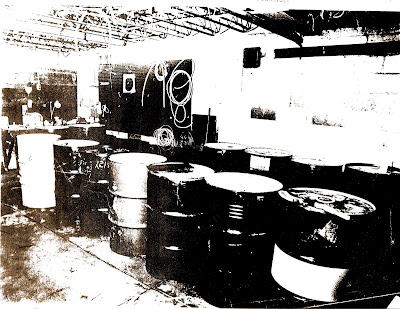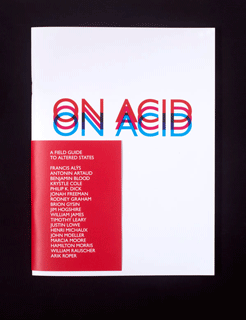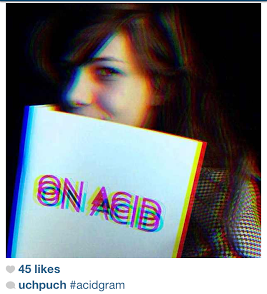GASPAR NOÉ: In Inauguration of the Pleasure Dome, the priest or the shaman is giving a magic drink to all of the people around him, and I was surprised to read in some books about you, that he's giving them yage. I've done yage many times in the jungle in Peru, and it's a drink that is full of DMT. Have you ever done yourself chemical DMT? Or have you drunk ayahuasca?
KENNETH ANGER: No, neither one. I've read about them, but I've never tried them. I don't go out of my way to seek that sort of thing. But yage is from South America, isn't it? I tried peyote, which makes me kind of ill before it clears up. But that takes all night.
NOÉ: Have you tried it many times?
ANGER: A few times. I haven't taken any drugs, of any kind, in years. It was an experimental period in an earlier part of my life.
NOÉ: They open your mind, if you don't lose your mind.
ANGER: Well, one thing you cannot do—once, I tried to film when I was on LSD. And I had very good LSD in the early days, because I was a friend in San Francisco of Owsley Stanley, the famous chemist. And in the early days, it was just a drop of it on a sugar cube. So I had very good LSD, but the problem was—I tried making a film, or doing some filming, when I was on LSD, and it's impossible. I couldn't focus. I tried focusing, but when I looked through the lens, I'd see all different layers of focus, and I couldn't find which was the real one behind the camera. And I just thought, this does not work, and I never tried that again.
NOÉ: I have a heavy question... What is the essence of cinema for you? Is it reproducing the language of dreams, or creating a shamanistic trance?
ANGER: I think it's basically quite different from dreams. If only cinema was that easy. Because dreams, all you have to do is fall asleep, and you can have fantastic vision. I know Baudelaire and people like that enhance their dreams with opium or something. But films are very constructed—they're like architecture. They're pieced together, glued together. To me, it's a craft. It's like making a tapestry. And I prefer to think of it—you know, um, the sweat is supposed to be invisible. But a lot of sweat can go into making a film. But of course, if you enjoy doing it, you enjoy doing it. I will go on cutting for three days without sleeping. You can have everything from a realistic story with recognizable people, or...
I actually love the Italian neo-realist films, and in some ways they seem very dreamlike. You know, the early Rossellini and so forth... But you can have a very expensive dream, which is quite beautifully done, which is like Cameron's Avatar, which you probably saw. Did you see it?
NOÉ: Yes.
ANGER: Well, that can be considered like a dream, a very expensive dream. I prefer simpler things.















